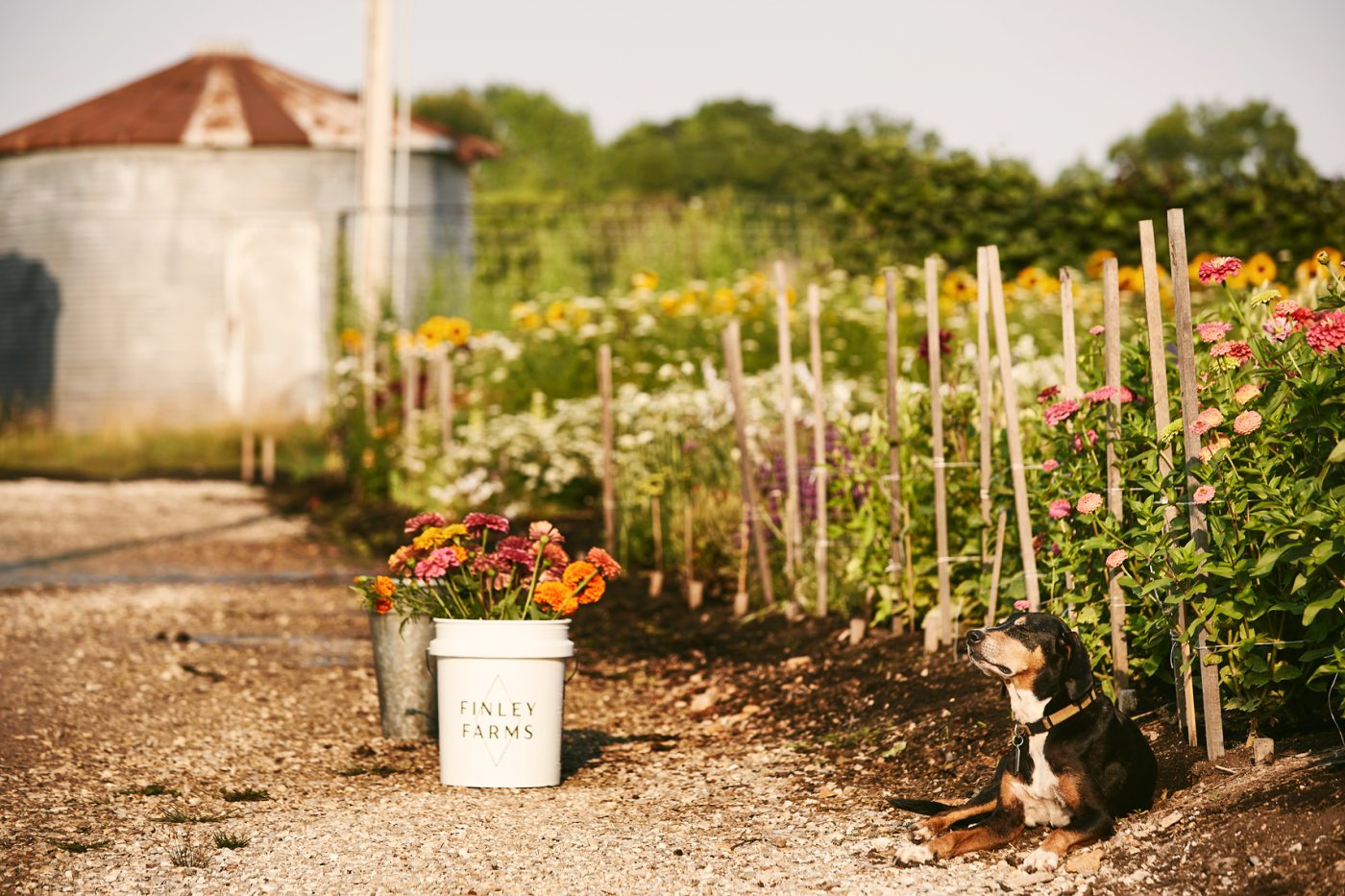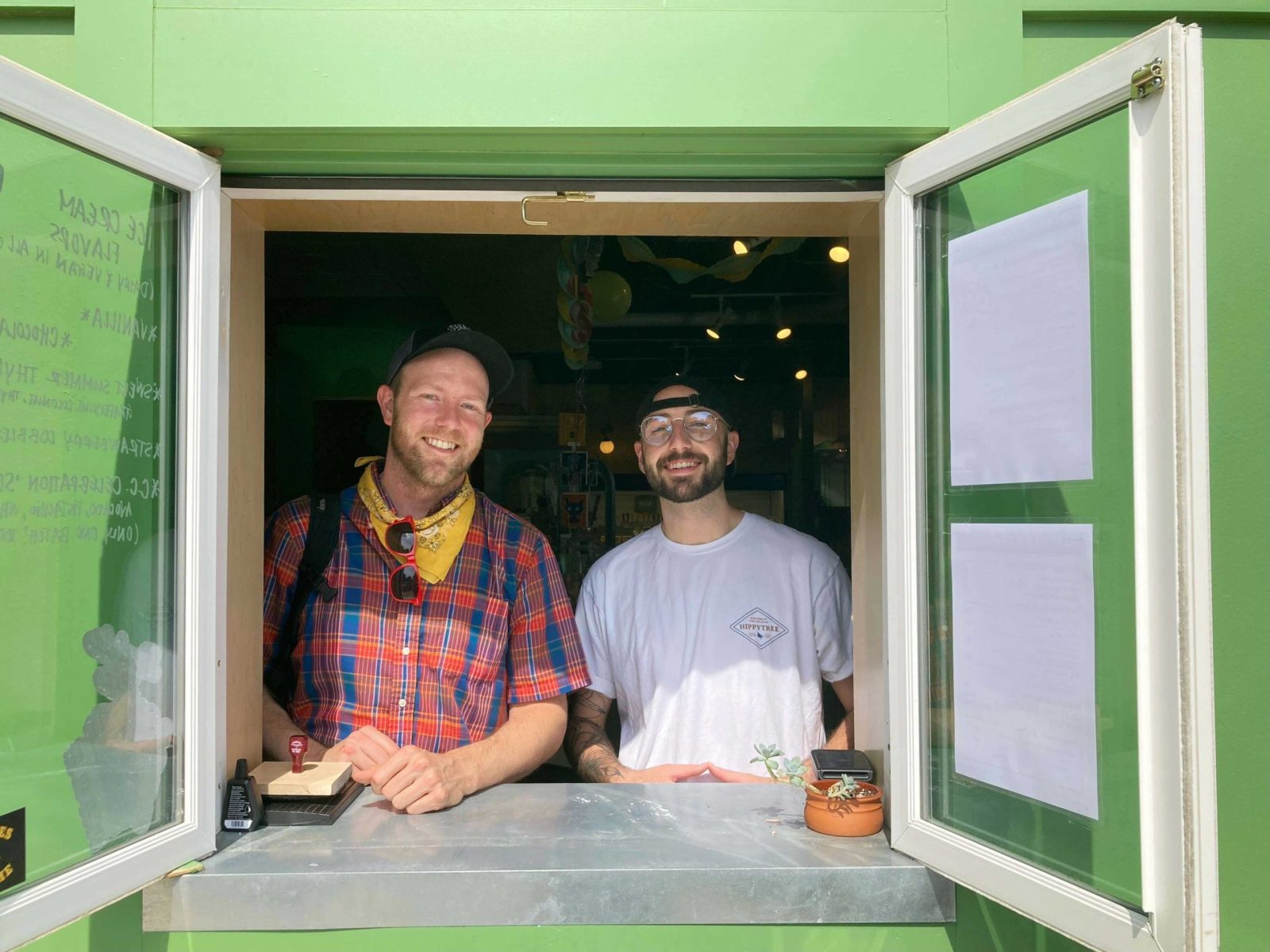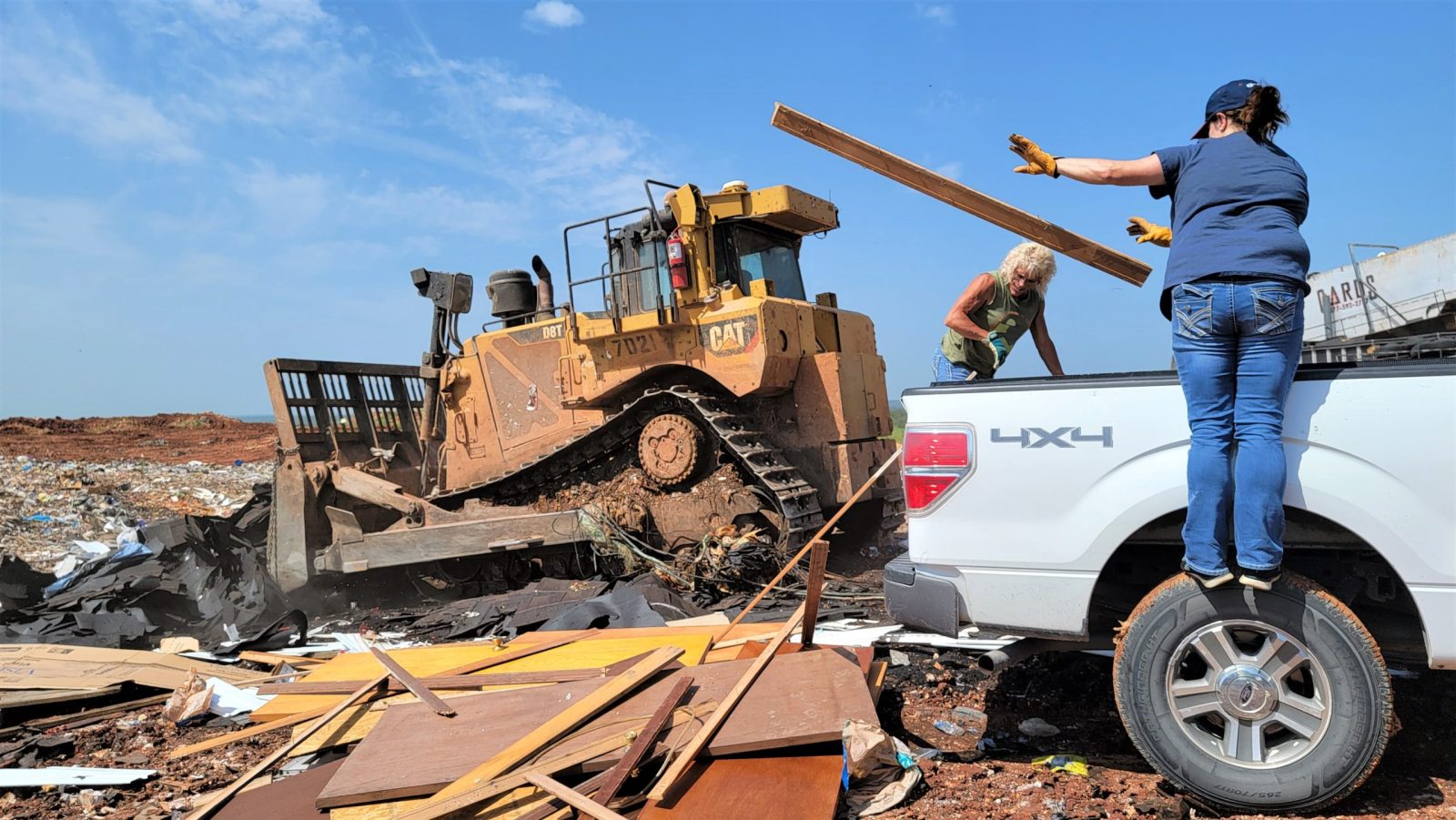Thanksgiving is right around the corner. It’s a time for family and gratitude, but also gluttony and waste.
Americans generate 25 percent more waste between Thanksgiving and Christmas than any other time of year.
Ashley Krug, market development and sustainability coordinator for Springfield’s Department of Environmental Services, said while she didn’t have exact figures, Springfield was expected to mirror national trends. Thanksgiving is a time for extra food waste, she noted.
Nationwide, about 172 million pounds of wasted turkey will end up in a landfill, according to the U.S. Chamber of Commerce Foundation. Another 14 million pounds of rolls get tossed.
But it’s possible to have a more eco-friendly Thanksgiving. With easy, doable steps, you can reduce your carbon footprint this Turkey Day.
Let’s get started.
Buy local
The closer your food is grown to you, the lower the environmental impact. So, it makes sense to shop local.
Jesse Stone, manager at Farmers Market of the Ozarks, says people don’t always realize all the produce they can score in the winter right here in Springfield.
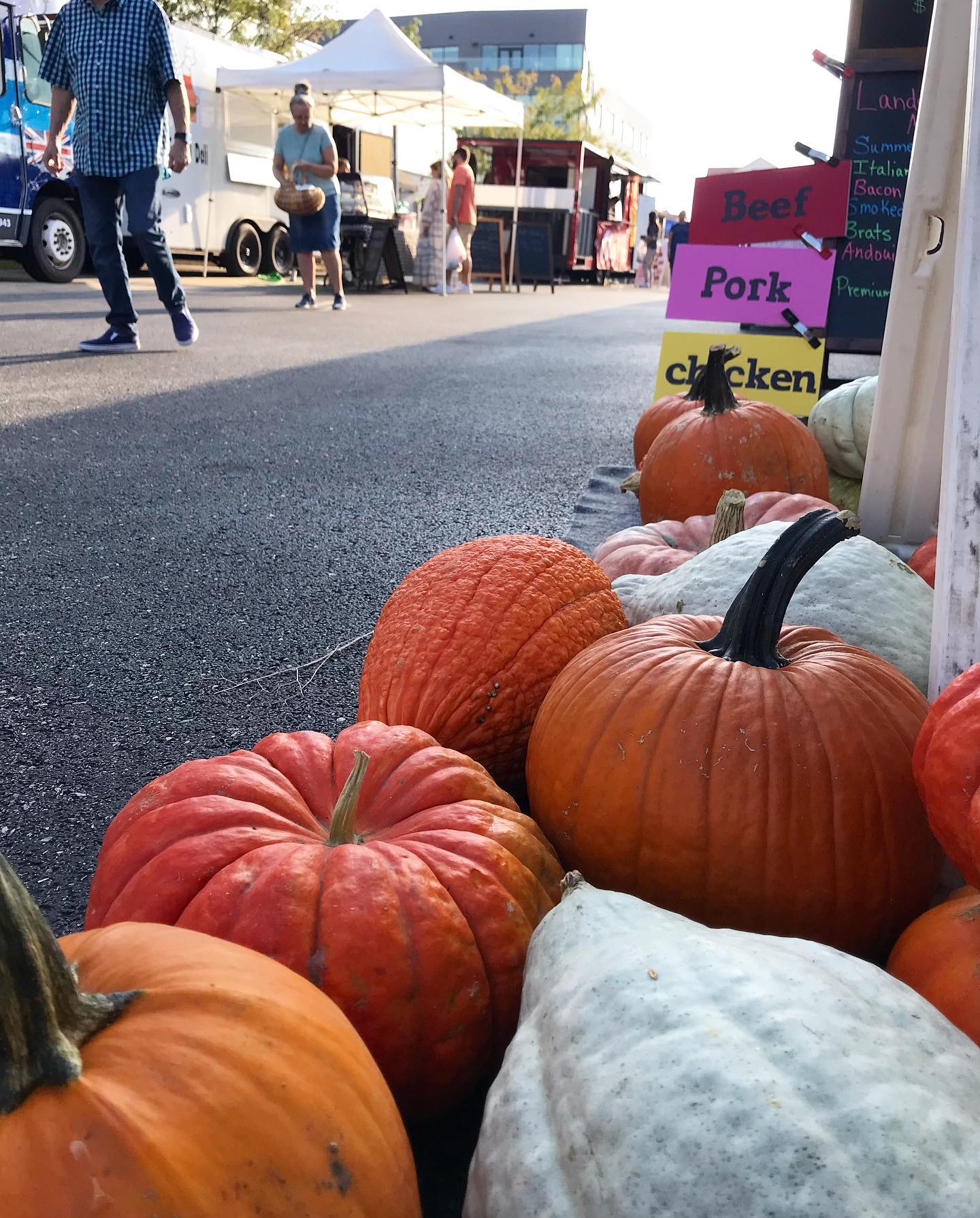
“We have lettuce and tomatoes all through the year, so even at Thanksgiving you can get fresh salad ingredients,” Stone said. “We have root vegetables, lots of yams, beets, turnips, pickled items, herbs, fresh eggs. Gooseberries, so people can make gooseberry pie. One of our Amish vendors froze his strawberry crop so he could bring out frozen strawberries to make pies. Local chestnuts, ton of potatoes and pumpkins.”
Buying organic is also another way to reduce your carbon footprint, whether it’s at a farmers’ market or even a grocery store.
MaMa Jean’s Natural Market sells local turkeys from Peace Valley Poultry, a sustainable, free-range farm in West Plains.
If you want one, sign up in stores, pay a deposit, and then pick up the birds between 4-6:30 p.m. Nov. 21 at the 3530 E. Sunshine location, said Amber Wilkerson, marketing director for Mama Jean’s.
There is no deadline to sign up, but with around 120 birds available, they are likely to sell out, so the sooner you secure one, the better. Sign up at any location, she said.
Wherever you shop, be sure to bring your own reusable bags and skip the plastic bags.
If you do have a plethora of plastic bags, which are not accepted at Springfield’s recycling center, Walmart stores recycle them. There is usually a drop-off at their entrance.
Food tips
It takes energy to grow food, package and transport it, so wasted food is wasted energy. Wasted food is a double whammy because it goes into a landfill and releases methane, a greenhouse gas.
Kevin Korman, executive chef at Finley Farms, says the first step is to look in your own cupboard for ingredients you have.
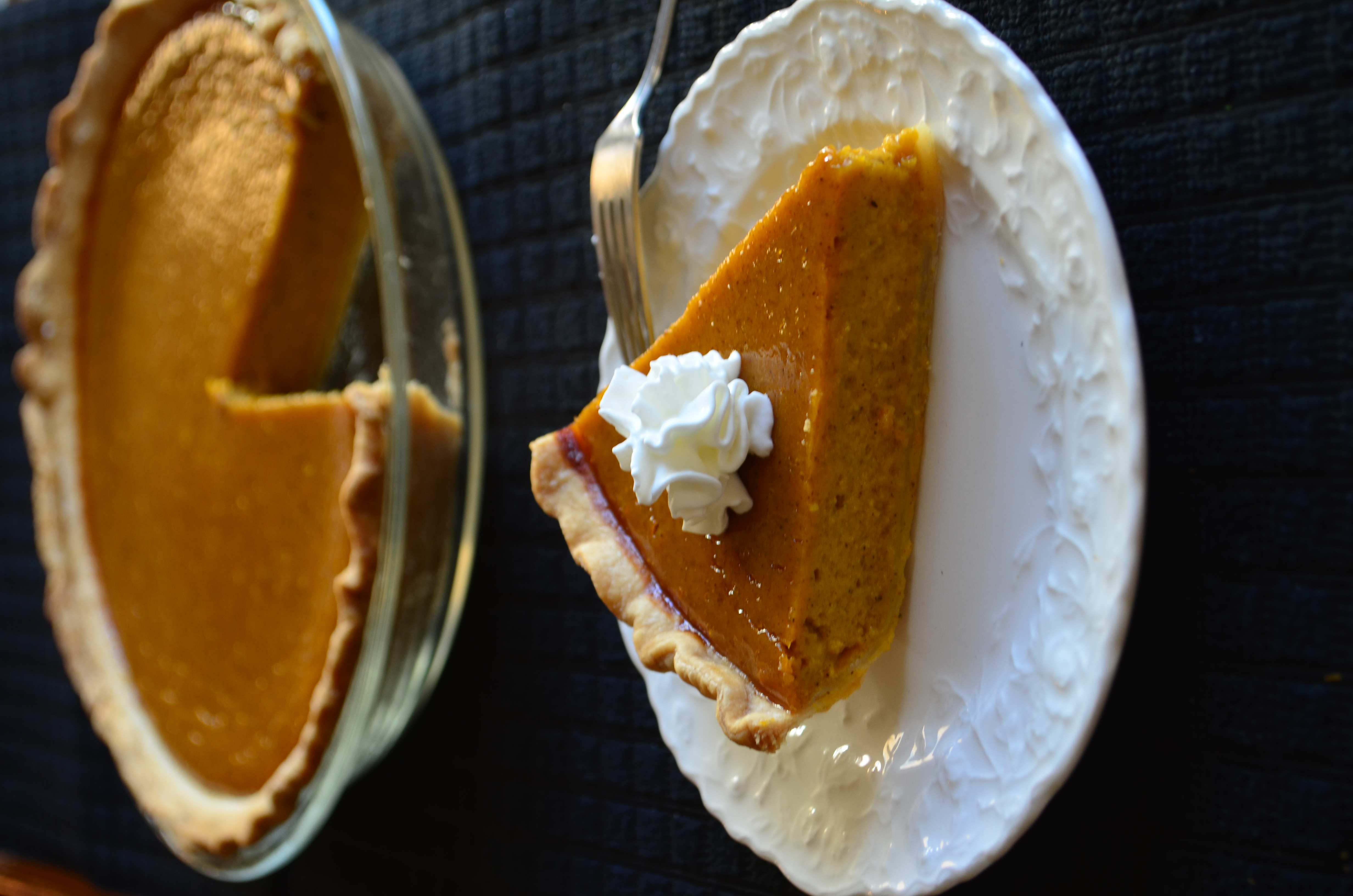
“More trips to the store means more fuel being used, and maybe you already have that poultry seasoning or pumpkin pie spice in your pantry,” he said.
If you have an abundance of an ingredient, Google some recipes. You might find one suitable for the holiday and forgo another dish, he suggested.
Look at what you’ve traditionally wasted in your house, skip those dishes or scale back. Do you need two pies or just one?
Krug suggests a website called Save the Food that helps you figure out how much food to serve. You can factor in light eaters, big eaters, leftovers, etc. She has used it for her Thanksgiving meals, and it’s helpful.
Cook from scratch as much as possible because packaged food requires more resources to produce, Korman said.
Although basting the turkey is a longstanding tradition in some families, you might want to skip it, explains Albert Barreda, associate professor in the department of Hospitality Leadership at Missouri State University.
“When we are basting our turkey, we are not adding flavor, juices, or color, but we are stopping the turkey from producing these juices into the cooking pan. Most importantly, every attempt to open the oven we let heat leak, decreasing the oven temperature, increasing the cooking time and wasting energy,” Barreda said.
Reduce and recycle
Opt for food and drinks with less packaging. Instead of serving cans of soda, buy 2-liters or make a big pitcher of lemonade. If you decide to have a variety of single-serving drinks, put out a recycle bin or several that are clearly marked. You can assign a family member to go around and collect the recycling — great job for a kiddo.

Put a sign in front of the trashcan that reminds people to recycle what they can.
It’s important people realize they can’t throw items like used napkins or plates into the same bin as recycling, because it contaminates the lot, said Krug.
Buy in bulk to reduce packaging. And don’t forget, a lot of that packaging can be recycled, but isn’t.
Krug says paper and cardboard is No. 1 item in our landfill, and most of that could have been recycled. In fact, about 70 percent of what ends up in Springfield landfills could have been recycled.
“Once it’s in the landfill it is illegal to remove it, so we have to make that decision to recycle at the household level before it gets to the landfill,” she said.
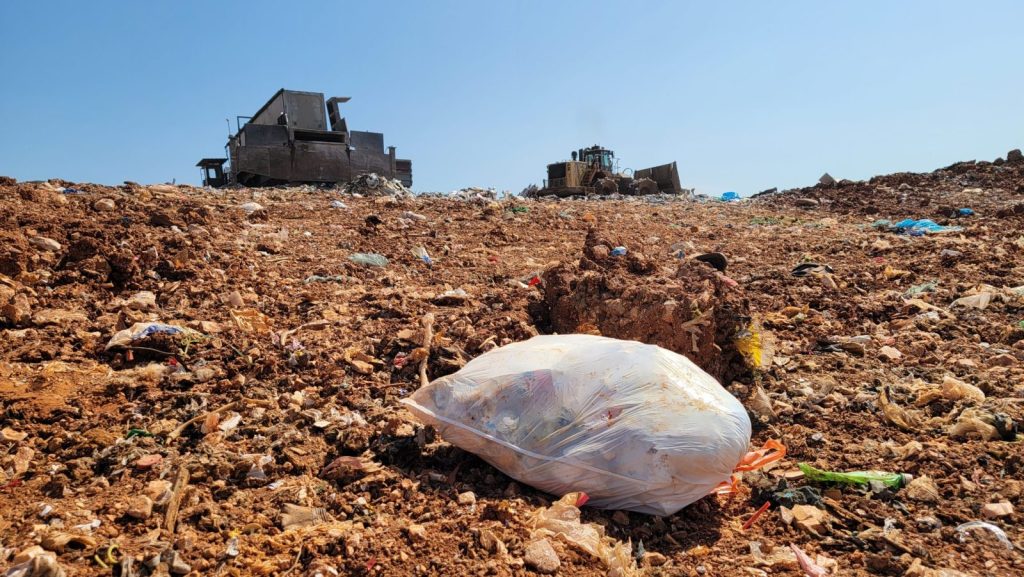
Save those aluminum cans, the boxes that contained the stuffing or pie crust.
Use leftovers. Can’t eat them all? Plenty of dishes can be frozen. Make a turkey potpie and freeze it. Cranberry sauce freezes well. Use your turkey carcass to make stock and freeze it. If you know someone with a dog, give them a little turkey.
If you can compost, that is a great option, said Krug. The city offers composting classes and the next is available in spring, called Dish to Dirt.
Another thing to consider is the wine you serve — choosing organic is considered a more sustainable choice. Matt Bekebrede, owner of Vino Cellars, has two organic recommendations for your meal.
- Gulo Hablo Garnacha, Spain ($19 for 1 liter). Bekebrede describes this red as lighter-bodied and dry. It has a bright ruby color with a nose of fresh crushed cassis and raspberry. There’s tart fruit, violets, white pepper, and a touch of terroir on the palate and finish. It is USDA-certified organic and Demeter-certified biodynamic, vegan.
- Gulp Hablo Verdejo, Spain ($19 for 1 liter). If you prefer a white wine, this is light and citrusy with a bone-dry finish. It has good minerality and fresh tones of crisp apples and lemon, he said. The farming is certified biodynamic and organic. It aims for healthy soils and forbids pesticides, herbicides and artificial fertilizers, Bekebrede said.
And those wine bottles can be recycled at Lone Pine, Franklin, and Yardwaste Recycling Centers. Springfield ships its glass to a company in Kansas City, which turns it into other forms of glassware.
Serving and cleaning up
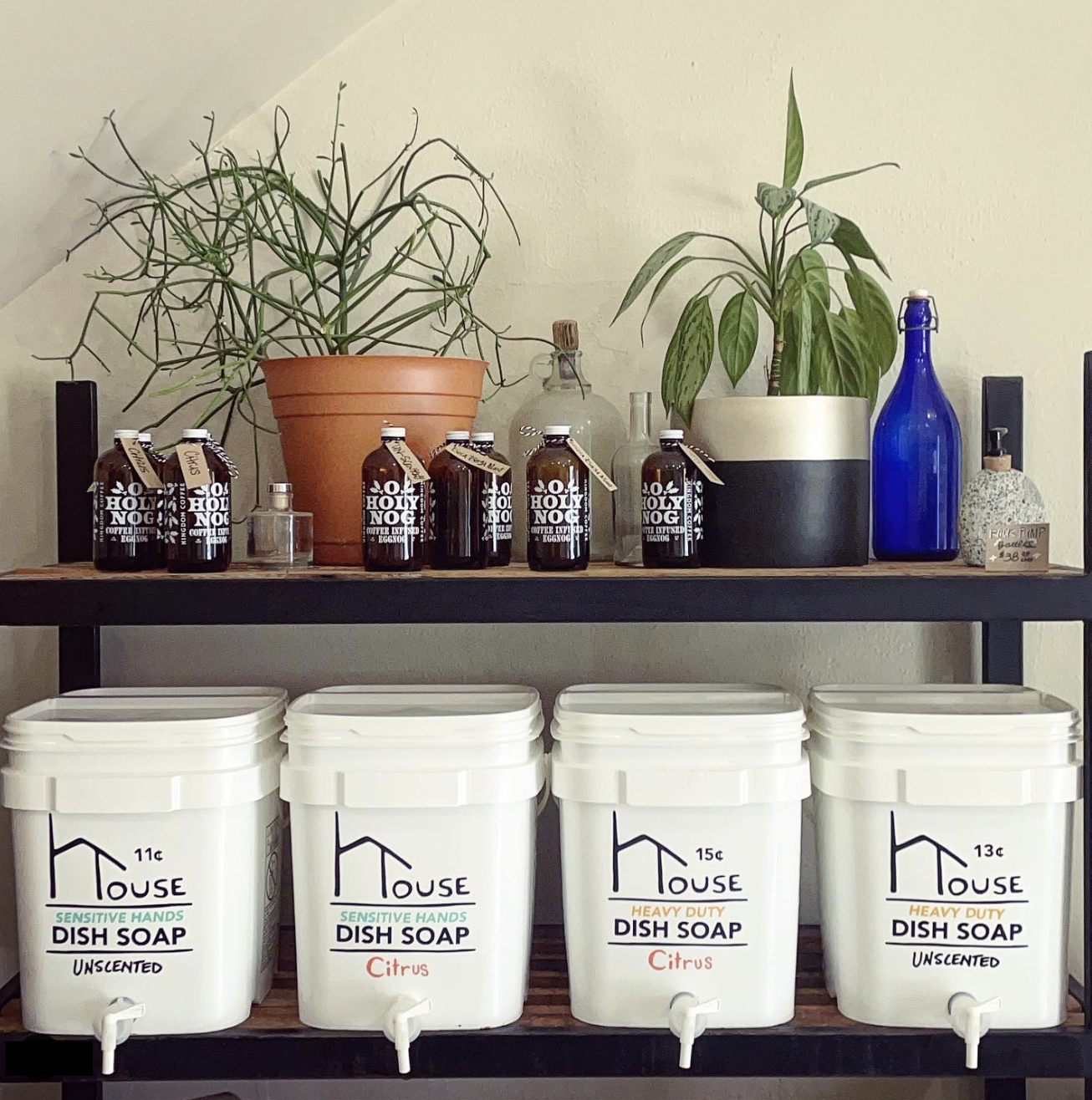
Skip Styrofoam and plastic and use real dishes instead, echoed Krug and Korman.
If you must use disposables, opt for paper plates, which break down faster.
Sadly, Krug said biodegradable plates, which are more expensive, aren’t that great.
Aluminum cups can be reused and recycled, she said.
When it comes to dishwashing soap, consider the house brand at the SOAP Refill Station, downtown.
It is made in Springfield, said Anne Dezort, owner of the Soap Refill Station, where you can buy environmentally friendly soaps, shampoos and other cleaning products.
“They are also closed-loop products, meaning that we reuse all of our barrels, buckets, lids etc., as to not create the need for new virgin materials and keeps our prices as low as possible. When you choose to refill house brand products at Soap, you are getting the best products at the best prices with the most responsible footprint — no shipping, no packaging, clean ingredients,” she said.
At the refill station, dishwasher products start at 18 cents per ounce, which comes out around $4 for a 24-ounce bottle of locally made, refillable soap.
You bring in a container, and they will fill it. If you don’t have one, they’ll give you one.
But when it comes to washing, turn off the heated dry function on the dishwasher. A study by Environmental Research Communications showed using the heated cycle consumed 11 percent more energy.
With these easy steps, you can create a more sustainable holiday.



